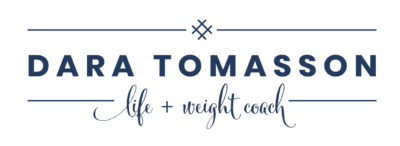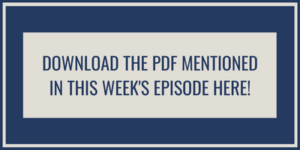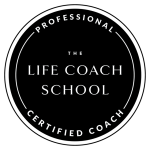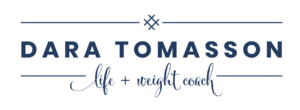 What is your relationship with exercise? Do you ever feel tied down by it, like it’s a burden? Do you experience emotions like resentment, frustration, or anger when it comes to exercise? Well guess what? You absolutely do not have to exercise to lose weight! I am here today to challenge the common belief that exercise is essential for weight loss. I will be sharing my personal journey of dropping 50 pounds without relying on traditional workout routines.
What is your relationship with exercise? Do you ever feel tied down by it, like it’s a burden? Do you experience emotions like resentment, frustration, or anger when it comes to exercise? Well guess what? You absolutely do not have to exercise to lose weight! I am here today to challenge the common belief that exercise is essential for weight loss. I will be sharing my personal journey of dropping 50 pounds without relying on traditional workout routines.
I discuss the impact of exercising out of love rather than obligation and propose alternative methods to incorporate gentle movement into your daily life. There are many negative effects of exercising out of obligation, so I encourage you to reassess your mindset towards exercise, diet, and self-image.
If you are ready to lose weight and change the way you think about hunger, sign up for the lifetime access membership for Love Yourself Thin! Doors are open and you can find all the information by clicking here.
What You’ll Learn from this Episode:
- The negative effects of exercising out of obligation
- Ways to lose weight without exercising
- Questions to ask yourself to determine your relationship with exercise
Listen to the Full Episode:
Featured on the Show:
- If you are ready to lose weight and change the way you think, sign up for the lifetime access membership for Love Yourself Thin! Doors are open and you can find all the information by clicking here.
- Leave me a review in Apple
Full Episode Transcript:
140. Weight Loss and No Need to Exercise
Do you totally hate wearing spandex and sports bras and running shoes and feel guilty about working out? Well, guess what? I’m Dara Tomasson, and this is Love Yourself Thin Podcast, episode 140, Weight Loss and No Need to Exercise.
That is right, ladies. You heard me. You absolutely do not have to exercise to lose weight. In fact, I purposely have lost 50 pounds and kept it off and I did not rely on exercise. Now, you might see on Saturday mornings, I will post me running around my lake. Well, it’s not my lake I like to think it’s my lake. It’s not my lake, but the lake near my house on Saturdays and I pretty much do that every week. I started that about over a year ago, and it’s mostly just for my mental health And I will sometimes do weights. In fact, you’ll see me maybe posting pictures of me doing weights and I do maybe five minutes, a couple of times a week, but you’ll see why. So this episode is for all of you who believe that you have to exercise to lose weight and keep it off. And I’m going to debunk that. That’s going to be super fun.
So before I start that though, I want to share about the ripple effects of women that are in my program, what’s happening with their families, what’s happening with them when they do this work. Because one of the challenges I see a lot of women have, myself included, and it’s work that I’m doing, is learning that it is not selfish to do your own life coaching, your own spending time on your brain. And there’s a story out there that somehow I picked up ever since I was a little kid that said you shouldn’t spend time on yourself. You should serve other people. And although I have five kids and although I love helping other people, I found that when I don’t spend time, and this is the common theme in my membership, if you are not spending time on yourself, then you’re feeling a lot of resentment, a lot of frustration, a lot of disappointment, and you kind of turn into someone who you don’t want to be. So, instead of worrying about becoming a narcissist, or conceited, I really want to show you that when you do this work for yourself, you truly start to nourish yourself. Now, recently I did a master class on breaking up with food, and I used a lot of the concepts from Melody Beattie’s book Codependent No More. And codependent, she’s actually transformed her definition on what does it mean to be codependent? And so I’m going to read it to you. And it’s going to be really helpful. And in fact, next week’s episode is going to take a deeper dive into this idea of being selfish and that resistance of working, spending time on your own brain. But I’m just going to read this definition because she said people who don’t love themselves as much as they love others consistently in a way that hurts their relationships with them and with themselves. So really interesting concept of when you don’t care enough about yourself, and you put other people first, what an unhealthy relationship you’re having with yourself and with other people. So you’re not having that balance, which has all sorts of side effects. Weight gain, lack of connection with people, lack of connection with yourself. Okay.
So the inspiration for this podcast came from a coaching call with one of my clients who is really resistant about exercising. She said that she, Oh. So before I go into it, I need to share a ripple effect of what I’m talking about. So this is a member in the membership, and she has been doing some pretty cool things. And one of the things that she’s been doing is she’s been submitting her quilts for big shows like Paducah and QuiltCon and these, like the big names. And she’s getting them in. Now that’s really fun, but what’s happening is she’s now able to connect with other quilters more than she ever has before. And when she’s connecting with other quilters, she’s actually having other people benefit, their lives are benefited because they get this really great experience with her. But, if she hadn’t done this work and if she hadn’t shown up, then people are not getting this really great, happy, connecting person that they wouldn’t have otherwise. So I really love that. And she was just at a quilt con and was able to connect with so many people and have so much fun. But when you look at their life, their life is benefited because they get to have her in their life. And if she didn’t do this work, she wouldn’t be connecting with them. She’d be back in her room or being more isolated.
Okay. So this client, I was talking to her about exercise. Now, growing up, she felt that her parents were super fixated on exercise, and they talked about it a lot, and it was one of those things that separated her from her parents. And then when she was having kids, she went through this phase where she woke up every morning at 5 a. m. 5 to 6 months obsessively at working out. And then one day she just burned out and she just stopped. And it wasn’t who she wanted to be anymore. And it wasn’t what she wanted to do. And so now she has this really negative experience with exercise. And I’m going to offer the worksheet for this one is really helpful. So when you think about being on this podcast and listening, what I say to you is, Hey, listen I’m going to teach you weight loss in a simple way because I’m helping you look at your thoughts about all the things and when you can get your thoughts in check and you’re not afraid of your thoughts and you’re not afraid to look at them, then you’re able to use your brain to help you in a way that you didn’t know that was available to you in the past. And so you already have really great systems in place to having a lot of efficiency, a lot of success in your life. And I’m going to help you figure out what are those success strategies that you’ve already figured out. And then I’m going to help you use your brain to overcome the difficulties that you have with weight loss. It’s really fun and really good news because it’s actually not as hard and difficult. We don’t have to do the grind. We don’t have to be stressed out about it all. It’s all going to be okay.
All right. So let’s write down what is your relationship with exercise? So, do you have a relationship of fear around exercise? Do you feel like it’s like a, almost like you’re a prisoner to it? If you don’t do it, then you’re in big trouble. Do you find yourself rebelling against exercise? Do you find yourself feeling bitter, angry, or frustrated? So what happens when you exercise out of obligation? What are the thoughts that you have? I got to do this. This is so hard. I hate this. Why do I have to do it? This is the worst. Why does life have to be this hard? Okay. So when you have those thoughts, what do you feel? Frustrated, disappointed, argumentative, injustice, unfair? And then from those emotions, what kind of actions do you take and what kinds of actions don’t you take? So how many of you just put your hands in the air and say forget it. I’m not doing it. You rebel. Okay So just write those down and think about what state of mind you’re in when you have those kinds of thoughts and when you have a lot of those emotions which you’re not really sitting with and processing, chances are you’re avoiding them, you’re resisting them and you’re reacting to them. And just like the beach ball, if you avoid, resist and react, it just makes it worse rather than just accept.
Okay. Now next is what happens when you move your body? So you feel dopamine, you feel excitement, you feel a release. There’s a lot of really good endorphins that are released in your body when you’re exercising. Next question. What happens when you are fueled by guilt or shame versus being fueled by love and compassion? So what happens when you go and you think like me on Saturday mornings and believe me, like this past Saturday, my boys had a big tournament and we had to drive for an hour and a half and we had to leave pretty early. So I woke up at 6 30 and I went from my hour and it just felt amazing. And it was such a nice way to take care of me because I was fueled by love and I was fueled by dedication. And I was also fueled by a commitment to when I take care of my body this way, I just feel so much better. Now, I pretty much just do it once a week. over the holidays, I did it more, but I don’t, and I don’t guilt myself or feel bad about it. Sometimes if I get more in, great. If not, it’s no big deal.
Okay. What is your biggest fear of not losing weight? So one of the things that I see in my program and with women I work with is they have a lot of anxiety. And anxiety is going to your worst case scenario and staying there. So what are some of your biggest fears of not losing weight? And as you think about this, I want you to look at what is the story you’re telling yourself? So if you don’t lose weight, There can be the physical discomfort, right, of not being able to go on a kayak or when you’re on an airplane, when you’re sitting on chairs, it’s not as comfortable when you, maybe your family is together and they’re going for a hike, you wouldn’t be able to keep up with them so you’d have to say no. Like there are physical limitations. What about having a heart attack or a stroke or being on different medications, high blood pressure, all of that. So write those down, write down all the biggest fears, because it’s really important to acknowledge the fear that you have and truly acknowledge it and accept it and just allow it to be there. The more you can be honest with yourself and then have an openness, then you can not feel the shame.
So when I talk about not exercising. you don’t have to exercise to lose weight. And in fact, I highly recommend that you don’t exercise, especially if you’re in the mindset of negotiations of okay, I’m going to burn this many calories. And in fact, today I was listening to a podcast by Ben Brickman he’s an expert on insulin resistance. And he said, instead of having the calorie count on the packages that we’re eating, we should have the glycemic load and how much that impacts our blood sugars. Okay. So the elephant in the room though, is that exercise actually really does help you. And especially when we’re going into perimenopause and menopause, I wanted to read a little bit about what happens, or I want to share from an article about what happens when you are going, your body goes through this aging process. This is from Julie Upton so she talked about how postmenopausal women often eat as many calories as when they were younger as they have longstanding habits that are harder to break. And the problem is don’t have the same level of muscle mass and so we’re not digesting food as much. So she recommends that we eat 400 to 600 calories less a day, because otherwise it will add up.
In a 2017 review in Perspectives on Psychological Science, researchers looked at how reducing calorie intake affected weight loss or gain and concluded that only reducing calories is not the best solution for long term weight management and may just induce weight cycling. So that’s the yo yo dieting. So what we need to do is we need to watch what we’re eating. So we’ve got to eat more fruits and vegetables. So we have a good fiber, we have good protein, we drink lots of water. So another fact here, is starting around 40, age 40, we lose 10 to 15 percent muscle mass and strength every decade, says Upton. And I will link the research that I’m showing here. It pays to work out to keep your muscles strong and functional. And so one of the things that you can do are HIIT exercises or Tabata. And I actually have a whole series of that inside my membership that I created with my friend who is also a coach and she’s a CrossFit trainer. And she’s the, she’s actually 13 days or 12 or 13 days younger than me. Another thing you can do, of course, is eat less sugar and white flour because the white sugar and white flour are two of the biggest food culprits for insulin level spikes. And I’m going to have some more episodes on insulin resistance and what’s going on there. And so just being really mindful. Another thing that we need to do as we get older is to eat, make sure we have good protein because while we still need plenty of protein post menopause to build and maintain muscle, Upton, this is the study that I will include, says we need more protein as we get older for other reasons, including starving off hunger. It is best for our muscles and to keep hunger in check if we spread protein throughout the day. Aim for 20 to 30 grams of protein at every meal. Yogurt, milk, cheese, eggs, fish, poultry, and meat are all good choices. And you can also get it from plant based sources like beans and peas and nuts.
So I just wanted to share some thoughts with you on weight loss and on the importance of,
importance of really looking at your thoughts about the situation. And I want you to review some of these questions in here in the worksheet, because when you move out of obligation versus moving your body out of love, or when you talk to yourself and say, I have to exercise versus just exercising, it makes a huge difference. But the biggest takeaway that I hope that you get from this podcast is a, you don’t have to exercise to lose weight. You really don’t. You can learn to do so many other things, like feel your feelings, look at your thoughts, not react to those, look at the way you’re thinking about things and make decisions on purpose. And then the second biggest takeaway is that when you look at the way you’re thinking, you will see why you’re getting the results. And the more that you can be honest with yourself and be curious of why you’re thinking the way you are, the more traction you can get in moving forward in a more powerful and helpful way. And that is why the women in Love Yourself Thin do so well because they are finally seeing that it’s not so much about what they’re doing, it’s about thinking about why they’re doing it, how they’re doing it, and the more that they can get in touch with their feelings and see what the genesis is, see what, what is spurring you to do this, or what are you being fueled by? That’s what’s going to get you your biggest results.
So if you are resonating with this podcast, are you, if you’re seeing, you know what, this makes sense. I can see why I’m still yo yoing, I do want to just share one experience that I have personally and what a change it has been for me. So when we first moved here, I made a friend, and we would walk around this lake that I really like to walk around. It’s six kilometers, and we would go pretty religiously. And the thing that’s interesting is most of our conversations were negative. They were talking about how much we hated our bodies and how frustrating it was. I couldn’t wear my wedding ring, so I would talk about that. And we’d bring up all of the difficulty. And we would hit, we would hit it sometimes three times a week. So I was doing 18 kilometers. But my cortisol was so high, my negative self talk created so much stress for myself that I didn’t see any of the benefits of exercise. And now it’s been since 2019 that I’ve lost the 50 pounds. I just started running about a year, year ago year, maybe two and I just go pretty much once a week. In the summer maybe I’ll go more because we have longer days But I don’t do any of that exercise out of obligation I do it out of love and I generally don’t even listen to anything I basically just am with my thoughts. I rarely even bring my phone. Sometimes I bring my phone so I can, you know, film video or if I’m worried that my kids will need to get a hold of me, I’ll have that. But generally I don’t even bring my phone and I just have that time to myself and it feels amazing. It’s such a gift I give.
So I’d love to hear your feedback on this episode because if you are being triggered by, by exercising, don’t exercise. Just don’t do it. Don’t put on the sports bra. Don’t put on the spandex. If you know that you want to do it and it will feel better, just wear your regular shoes and just go for a walk around the block. Or just walk for 20 minutes. One of the things that I do is I have an eight pound weight that’s on the floor, just where I’m sitting in my desk. And I just put that weight in between my two feet and I will just do that exercise. Because that’s one of my biggest muscles is my leg muscles and I just lift that up and down when I’m coaching or when I’m writing and I’ll just do that for five or five minutes or so. And then every once in a while, I’ll just take that, those eight pound weights and I will pump my arms. I’ll just do that. Sometimes I’ll go on my little trampoline. I use exercise just as a kind of a endorphin release. It’s a very different relationship. I’d love to hear your thoughts.







